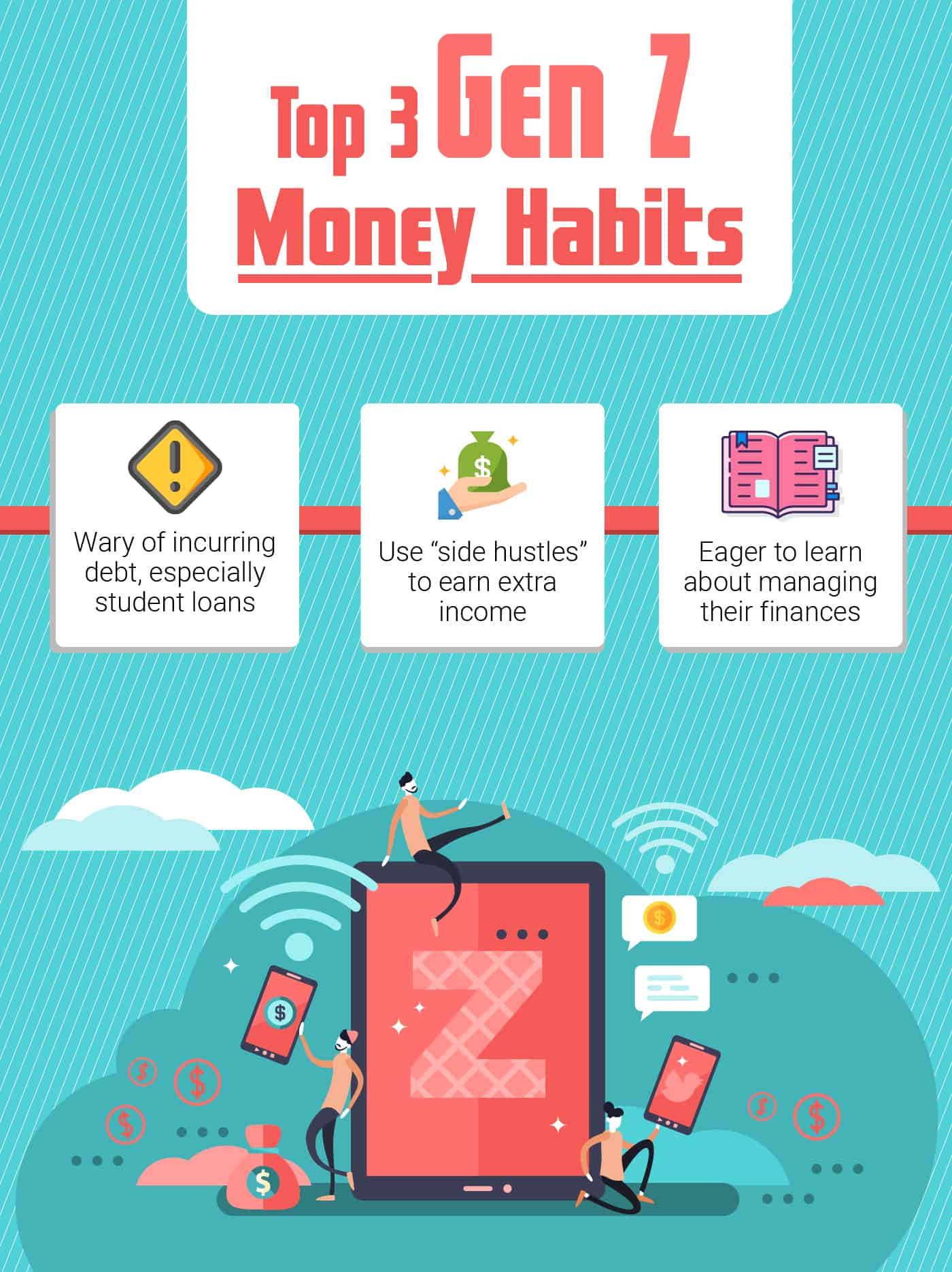
3 Financial Marketing Strategies Focused on Gen Z’s Money Habits

From music and fashion to the way we interact, generational differences can be subtle or significant. That means when it comes to marketing, what worked for one generation may not resonate with another. And as Gen Z comes of age and begins making their own financial decisions, your Millennial member acquisition marketing strategy just won’t cut it.
It’s time for financial institutions to reevaluate member communication strategies to reach, engage and convert the next generation of hyper-valuable consumers. But first, you must dive into the minds of Gen Z to understand how they view money and their wants and needs surrounding their finances.
Gen Z’s Views on Money
While young, Gen Zers tend to have a fairly realistic outlook on finances. Many saw their parents struggle through the Great Recession and watched their Millennial counterparts amass mountains of student loan debt. They view the money mistakes of previous generations as cautionary tales and want to ensure history does not repeat itself. Here’s a look at some of the most prevalent views on money held by Gen Z.
Wary of Debt
Debt is a subject of focus and concern for Gen Z, particularly when talking about student loans. The student debt crisis has prompted Gen Zers to seek opportunities to pay as they go for higher education, working one or more jobs to cover tuition and living costs. Less costly options, like community college and trade schools, have also gained popularity with this generation as it allows graduates to enter the workforce at a fraction of the cost of a traditional four-year university.
Earn Extra Income
Gen Z’s entrepreneurial spirit is a key part of their identity. As with Millennials, having a “side hustle” is a way for Gen Zers to take charge of their finances, making extra cash to support their lifestyles, education and ultimate goals. For the younger generation, these extracurriculars are often digitally focused, with the internet opening endless opportunities to earn money online. From YouTube channels and digital products, to software development, 35% of Gen Zers own their own business or plan to start one in the future.
Eager to Learn about Finances
While avoiding debt and finding ways to boost their income puts Gen Zers on the right path towards financial independence, they’ve still got a long way to go. The good news? They’re eager to learn what’s going to get them where they want to be. Financial education is a priority for Gen Zers. Setting and staying on budget, understanding credit, and investing are just a few of the topics Gen Z actively searches for information on, and the financial institution that commits to delivering that information may be ahead of the pack with these young consumers.
Opportunities for Financial Institutions to Connect with Gen Z
With a stronger grasp of what young consumers are thinking comes a better understanding of what it takes to position your institution as the answer to their questions. For credit unions and banks, the opportunities to create branding, products and messaging that resonate with Gen Z are clear cut—focus on financial education, appease their concerns and get them on the path to smarter money habits.
Focus on Financial Education
A 2018 report published by Barnes & Noble on Gen Z reveals interactive and engaging learning experiences are key to capture and maintain the attention of students that have grown up in the digital age. Using technology, providing hands-on learning opportunities and offering individual attention topped the list of learning methods Gen Z values and responds to. Keep this in mind as your institution develops financial literacy courses, workshops or guides aimed at a Gen Z audience and focus on ways to involve your younger members.
Break Tradition
Gen Z is anything but traditional, which means there is little room in their lives for traditional banking. It’s time to redefine your offerings to meet the needs of this highly valuable audience. And that starts with speaking their language.
Ask a Gen Zer when the last time they wrote a check was, if ever. Why, then, should they open a “checking” account with your institution? Capture Gen Z’s eye and business with “spending,” “flex,” or “everyday,” accounts instead. Then, prioritize online and mobile banking to serve young new members where and when they need it.
Related Reading: Partnering with Fintechs to Market to Gen Z
Make Good Financial Habits Rewarding
Enjoying a reward for a job well done isn’t exclusive to Gen Z—we all want to be recognized for our triumphs, whether big or small. This universal quality is one of the driving forces behind the success of rewards or loyalty programs for brands like Starbucks.
To apply this strategy for your institution and effectively target Gen Z, bringing a gamification or app-based component is key. From cash back rewards deposited straight into savings accounts to savings challenges for members to participate in, these rewards not only help build good financial habits, but also position your institution as a trusted, transparent guide towards the financial independence Gen Z craves.
Where to Begin
Tapping into a new population segment calls for extensive research, in-depth planning and strategic thinking. The insights above are just the tip of the iceberg in reaching the Gen Z audience and having your message resonate with their values. To dive deeper into the psyche of these young consumers and what they expect from their financial partners, we’d suggest starting by developing a marketing persona for your (potential) Gen Z members.
